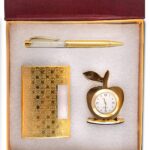
There are three options for creating Vehicle Branding Services: yes, no, and wow. This applies to every type of design, not just printing designs. You don’t have to learn about printing to determine if what your printer produces is either mediocre or extraordinary.
However, there are times when you’re caught between the two and understanding fundamental aspects of the design task you have given to the printer could help in making sure you receive that top-quality job was done at the end of the day when it’s a moment for your printer to complete the job.
Therefore it is important to understand the basics of the printing design you are requesting. Here are some things and terminologies to be aware of before presenting the job of printing design to a printer.
Colours
In printing, the use of colours is crucial for the high quality of the print printed. In printing, the colours used are classified by CMYK (Cyan, Magenta, Black, and Yellow Color Set) when computer graphics employ RGB which is the mix of three colours (Red, Green, Blue)
This means the image you view on your screen may not be the same as what you most likely see when the design is printed. And that leads us to the next important aspect to consider when outsourcing your printing design to a printer
Resolution
Naturally, there is a significant difference in the quality of the way an Image appears when digitally viewed and when printed. When it comes to web images and the other images that digitally are available, the resolution doesn’t pose an issue.
In printing, you can safely declare that to preserve the quality of your image or design the image or design should be in a high-quality resolution to look great. One of the most effective ways to ensure that your printed product to come out fantastically is to ensure your DPI is set to 300.
The DPI is known as Dots per inch. It is the amount of dots that your printer will make on one square inch of the printed page. The purpose of DPI is to increase the quality of printed images. The more powerful the DPI is, the greater the sharpness and clarity of the image. An image with 150 Dpi is acceptable however 300 DPI is the best for a high-res image.
Another reason for resolution is crucial when printing is the scale. When printing a larger image, there’s an opportunity that some parts from the initial image might become blurred. Therefore, you must consider the various elements before going ahead with printing.
In the case of scaling an image, it is crucial to use typography. If you’re printing a large-sized image ensure that you avoid tiny fonts as well as light fonts and heavy.
Does the design look good? What is the process for proofreading?
The process of proofreading is an important procedure to perform before submitting your design to print. In the first place, it prevents the cost of printing because when you find mistakes in your print the print may be redundant and you could be required to pay for a printer to print your correct design.
It also saves you the embarrassment if the design is made public and somebody notices the mistake.
But, aside from checking to avoid typos, you should also be on the lookout for mistakes in punctuation and kerning. Kerning is the act of altering the spacing between the letters to produce the desired look.
Here are a few of the basics you must know before the designs you print being printed, but,
But that’s not all.
These are some terminologies which could help you avoid confusion when designing your project.
Bleeding:
This has to relate to design elements that extend beyond the edges of the printed paper. Printers mark the bleed with marking a bleed mark of 0.125 inches beyond the edge of the trim piece.
CMYK
The combination comprises four colours that are the colours cyan, magenta, yellow and Black. Every printed design must change to CMYK before printing unless when it’s a low-Pantone colour run.
Pantone Colour:
A combination of colours universal that all printers can reproduce. Each of the Pantone colours has CMYK, RGB, Pantone and hexadecimal colour codes, and they assist in maintaining colour consistency throughout the printing
RGB
The RGB is the combination of three colours that are commonly used in digital design they are Green, Red, and Blue.

Conclusion
It’s important to understand some details about the service that you’re paying for before making a payment for it. If you are unsure of the terms or the process used to print your product, you can ask for clarification. Explore our website listing of Signboard Companies Dubai Printing, printing, T-shirt printing Dubai and Glass Partition Stickers.










